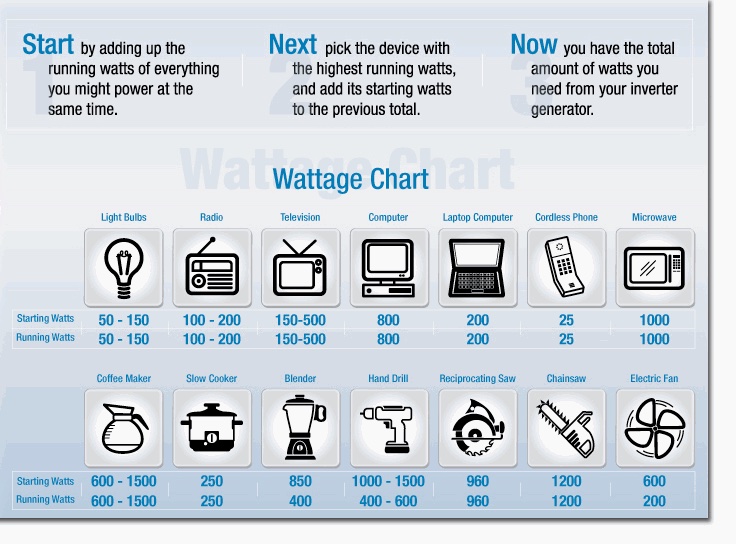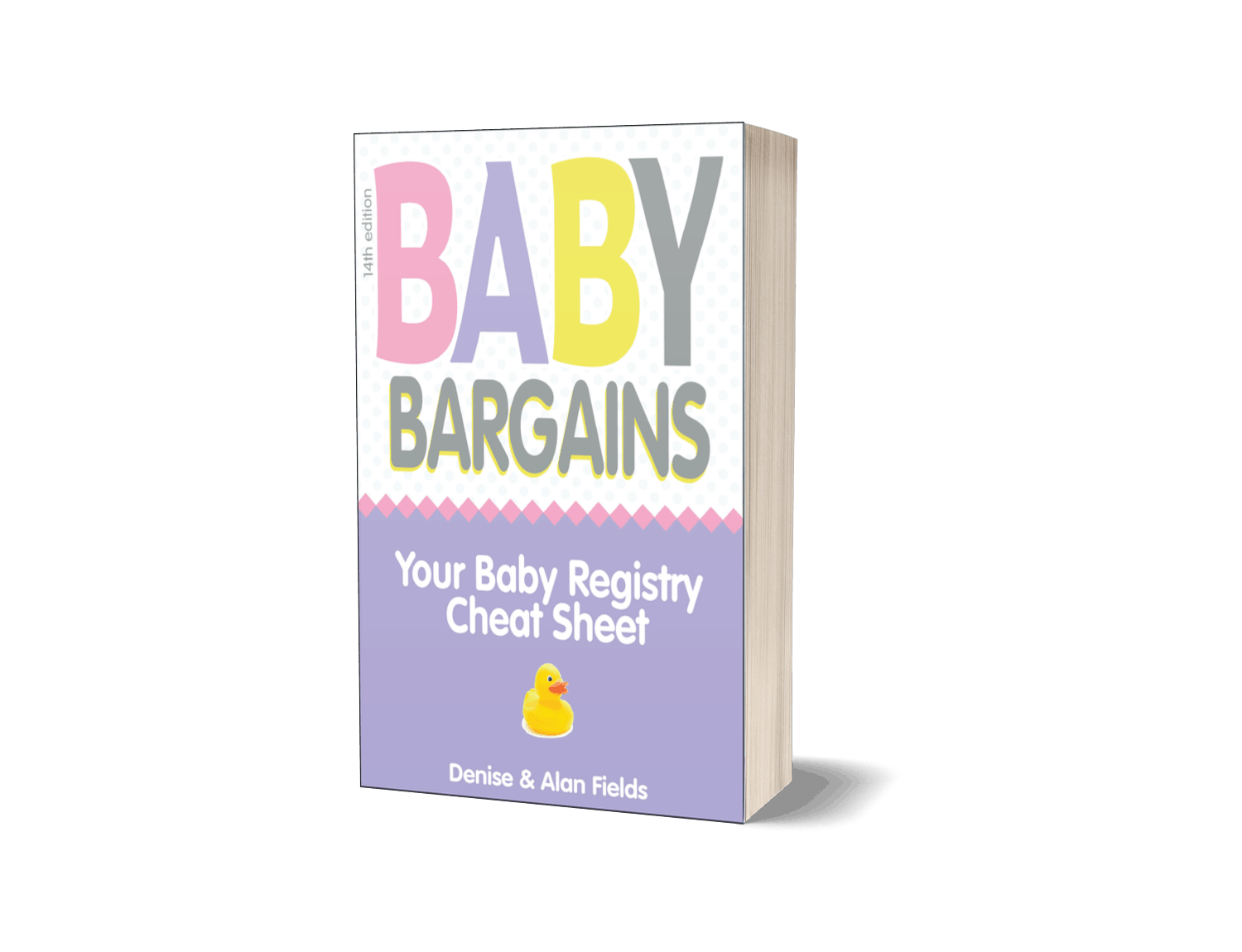
Last Updated: .
The Power is Out: Now What?
Let’s talk generators for home use. (And by home, we also mean RV, camping or cabin!)
If you need power in the case of a weather emergency (hurricane) or want a way to power some basic appliances while camping or RV’ing, a generator is the most obvious solution. But where do you start when shopping for this?
Let’s go over some Generator 101—and how to determine what is best for your needs.
I get it—generators generate power. What are the basic options?
In the past, you basically had one option: a gasoline-powered generator that was noisy—and needed to be kept outside, given the toxic exhaust. You could plug in a few appliances, running extension cords at long distances from the outside.
In recent years, newer “whole house generators” came on the market that can run on natural gas. They still made the same noise as gasoline-fired generators, but since they had a steady stream of gas, they didn’t run out—and thanks to automatic transfer switches, your home could be back online just minutes after a power outage. These whole house generators automatically switched back to city power when it came back online.
The newest option are lithium battery “generators.” Now, we use the word “generator here loosely”—like any large battery, they have to be charged (typically by regular household current or solar panels). So technically, they don’t “generate” power, they store it.
Good news: new battery backup models have come on the market than can power an entire house, especially when used in tandem (that is, two batteries tied together to handle the large loads of appliances like ovens, furnaces, etc.).
So what are the basic pros and cons of each?
Gas-powered generators (either gasoline, propane or natural gas) can work for an unlimited period of time (at least until the fuel runs out, in the case of gas-powered models). If you live in a hurricane zone and have experienced days-long outages, that means your house will have power for as long as it takes to get back on the grid. (You’ll need a generator cord to tie the generator into your home electric panel.)
The downside to gas-powered models: these generators are loud. We mean LOUD—and that can be a problem with the neighbors. They also need to be outside, since they exhaust toxic fumes. Gas-powered generators aren’t designed to be run in the rain—so that can be an issue if you are using it at a remote cabin.
Finally, whole house generators that run on natural gas typically are installed by professional contractors . . . at a significant cost. Then they require regular maintenance, which runs hundreds of dollars a year (changing out spark plugs, oil filters, etc.).
Battery-powered house backups are quiet—and they don’t require professional installation (beyond the initial tie-in to your electrical panel). You don’t have to do that, of course—you can just use a battery to run critical appliances, instead of the entire house.
Best of all: battery generators can be installed INSIDE a house—so it doesn’t matter if it is raining or snowing outside. And most require no regular maintenance.
Lithium batteries do have a few downsides—they are heavy. And they only can store so much energy, which means hours of run time (not days). Yes, solar panels can be used to charge them . . . but this is a slow process. (Good news: some models can even be charged at those electric vehicle charging points).
Final point: while you can run a whole house battery backup system while it is raining, the battery itself can not be in the rain. It isn’t waterproof! So keep that in mind if you are camping or RV’ing!
What is the best solution for RV or camping?
A smaller backup power battery system with a solar panel is probably the best bet here. These less expensive-models are designed to charge up smartphones and tablets, as well as run small appliances. Some can even power an air conditioner unit.
How do I decide what is best for my situation?
Ask yourself some basic questions:
- How LONG do you need power? A few hours? Overnight? Or days, in the case of a weather-related disaster?
- What are you powering? A toaster requires much less power than an air-conditioning unit. Consider not just the WATTAGE you need but also the STARTING WATTAGE. The largest refrigerators may require 1500 running watts and 4000 to 6000 watts to start. Here’s a basic chart to consider:
(Source: Honeywell)
After spending 10 hours of research, here are the best options on the market today. We spoke with three industry veterans (who sell and install generators) to come up with this list—and then we got additional feedback from our readers, whose real-world experiences provided us with important insights. Best Generators for Home Use
Best Whole House Battery Backup
Check on Amazon
Best Whole House Battery Backup: EF ECOFLOW Solar Generator DELTA
This brand impressed us with its overall design—and it came highly recommended by several of our readers. Yes, this is an entire package: battery plus solar panels.
As for thoughtful design, note all the connectors: 13 outlets—6 AC, 2 USB-A, 2 USB-A fast charging, 2 USB-C. Best of all, it supports pass-through charging: that means you can charge it with solar panels WHILE drawing power from the outlets.
What We Liked
• Great for emergencies when you need power for a few hours.
• Perfect for camping or RV’ing.
• Portable design—note the handles!
• Folding solar panels are waterproof and easy to set up.
• Lots of ports.
• Pass-through charging.
What Needs Work
• While the solar panels are waterproof, the battery isn’t—must be kept out of the rain.
• Takes a LONG time to fully charge with solar panels—about two to four hours (and that is only if the panels are arranged perfectly in full sun.
• Solar panels are of average quality and wattage.
• Overall wattage good for short term use (can run an 1800 watt air conditioner unit for about an hour), not for longer time. Later in this article, we’ll discuss a more robust solution by the same brand for more run time. Best Generators for Home Use
Best For Extended Outage
Check on Amazon
Best For Extended Outage: Generac Guardian 24kW Home Standby Generator
This tried and true brand came recommended both by our readers (who like the reliability and ease of use) and contractors (for installation simplicity). Yes, this is a natural gas-fired generator that is always in standby mode—and transfers the power automatically if there is an outage. This would be an excellent choice if you live in an area with unreliable power or prone to frequent weather outages (hurricanes, etc).
What We Liked
• Automatically turns on in outage; off when power comes back to the grid.
• Hooks up to natural gas supply—no need to charge batteries or add gasoline.
• Works even if it rains outside.
• Automatically cycles on at regular intervals (to test the engine).
• 24,000 watts can handle entire home load—washer/dryer, refrigerator, furnace, A/C, you name it.
• Can be controlled via WiFi app.
What Needs Work
• Requires professional installation, which adds to cost.
• Requires annual maintenance: oil filter, spark plugs, etc.
• Loud.
• Needs to be outside of home (exhaust).
• WiFi connection can be spotty if unit is far from router. Best Generators for Home Use
Best For Camping
Check on Amazon
Best For Camping: Jackery Portable Power Station Explorer 1500
When we asked our readers for their favorite backup battery brands, this one came up time and again: Jackery.
The brand makes several different models—this one (the Explorer 1500) is our pick for camping, RV’ing and light-duty home backup power.
What’s great about Jackery is their well thought-out design. Note all the ports (7 outlets in all) and the generous 1800 watts of power. Yes, you can charge phones, tablets and computers right from the unit—or plug a small appliance into the A/C outlet.
We like how this unit can be powered with solar panels, which are unfortunately not included.
What We Liked
• Quickly recharges.
• Versatile and great for short-term power outages (running computers, router, for example).
• Ample number of ports for smartphones, computers, appliances, etc.
• Solar panel compatible.
• Works down to 14 degrees—so good for camping (maybe not so good for ice fishing).
• Lightweight at 35 lbs. (yes, that is light compared to other models we researched and compared).
What Needs Work
• A bit pricey for wattage.
• Charging block can get hot.
• Need adapter if you use non-Jackery solar panels.
• Top temperature limit of 104 degrees means this unit may not do well in desert heat (or a Texas summer). Best Generators for Home Use
Best Battery Extended Use
Check on Amazon
Best Battery Extended Use: EF ECOFLOW DELTA Pro Portable Home Battery
Most battery backup solutions on the market today are designed for light duty—that is, a power outage of a few hours. They can run some small appliances and charge up phones.
But what if you want a backup battery solution that can power an entire house? This model by EcoFlow puts out a massive 3600 watts (yes, that is more than double the Jackery model we just reviewed). And best yet: you can pair with an extra battery and run both batteries in tandem for a total of 7200 watts (you also need a double voltage hub).
Tie this into your electrical panel and you can run an entire house for hours (example: using 1000 watts of power at a time, this model runs for over 14 hours).
Of course, when you add the extra battery and the double voltage hub, you are getting up there in price—but compared to a Generac natural gas-fired generator, this set-up is much easier: no professional installation fees (assuming you have a generator hook-up to your main panel already). And no ongoing maintenance.
And yes, you can charge this model via regular A/C power or solar panels (albeit, that takes a while)—but also from any of those handy EV charging stations popping up around the country.
What We Liked
• Simple installation—no expensive contractors.
• Easy to use app—shows usage and more, so you don’t have to check the unit’s display panel.
• Works INSIDE a house or out (but not in the rain).
• No noxious exhaust.
• Quiet.
• Handle and wheels make it easy to move around.
• No annual maintenance like a traditional generator.
• Expandable—you can add more batteries to the system as needed.
• Rapid charging in just 2 hours—you can choose fast or slow charging.
• Can charge at an EV charging station—as of this writing, this is the only brand/model that offers this.
What Needs Work
• Pass-through charging limited to 15 amps.
• Plastic enclosure is not as durable as other brands we researched that had metallic enclosures.
• Not waterproof—can’t be exposed to rain/water.
• Fast charging can degrade battery life—use it sparingly.
• Heavy at nearly 100 pounds—good thing it has wheels and a telescoping handle! Best Generators for Home Use
Best Heavy Duty Battery Backup: BLUETTI Portable Power Station
Yes, we were impressed by the EcoFlow Delta Pro unit reviewed above . . . but the somewhat flimsy plastic enclosure gives us pause, especially if you want to take the unit camping or RV’ing. In that case, we would recommend Bluetti—this thing is built like a tank. And it offers an impressive amount of wattage (2200 watts) for the price.
What We Liked
• Works with or without solar panels.
• Variety of charging ports (16 in all) including some innovative features like wireless smartphone charging.
• Good bang for the buck.
• Expandable up to 6144 watts with another battery (separate purchase or buy as bundle).
• Touchscreen controls are easy to use.
• Easy to use app lets you monitor/adjust just about every detail you need.
• Bluetooth for control.
What Needs Work
• Fan can be noisy.
• Takes about 4 hours to charge—slower than other models we researched.
• Heavy at 61 lbs.—handles are nice, but wheels and telescoping handle would have been better. Best Generators for Home Use
About the Authors
Denise & Alan Fields are consumer advocates and best-selling authors. The Fields have authored 12 books with three million copies in print, including the best-selling guide to baby gear, Baby Bargains.
The Fields have been featured and quoted in the New York Times, Wall Street Journal and Los Angeles Times.
As consumer products experts, the Fields have been guests on the NBC Today Show, Good Morning America and ABC’s 20/20.
Best Generators for Home Use
How We Pick Products To Recommend
We often turn to our readers (3 million strong!) to find products to recommend. We ask our parent readers for their favorites and consider their real-world experiences in our recommendations.
When we test a product, we always purchase it with our own monies. We do not take free samples, as we believe that compromises our independence.
We also fact check manufacturer information with our own measurements. If a maker claims a product weighs X pounds, we will weigh it to make sure. If the battery life is supposed to be six hours, we will see how it stands up in the real world.
In some cases, we will do interviews with experts in the field to get additional feedback on products.
To get hands-on time with products, we regularly meet one-on-one with gear companies and even tour manufacturing facilities. (When we do this, we pay our own travel expenses).
Best Generators for Home Use
Why Trust Us
We’ve been rating and reviewing products for the home and families since 1994. We do extensive research, evaluating products with an eye toward quality, ease of use and affordability.
We make our living from affiliate commissions, but we always recommend what we think are the best bets for our readers (not the ones that are the most expensive). We are always looking for products that offer the best bang for the buck.
Our independence is a key reason why we have been doing this so long. As we mentioned above, when we purchase a product for hands-on testing, we do so with our own money.
Here’s another key point: we don’t take money from the brands we review. No free samples, no sponsors, no “partnerships.” Our work is 100% reader-supported!
Best Generators for Home Use

BabyBargains.com is a participant in the Amazon Services LLC Associates Program, an affiliate advertising program designed to provide a means for sites to earn advertising fees by advertising and linking to Amazon.com and its related sites. As an Amazon Associate, I earn from qualifying purchases.




 We obsess over gear for families . . . so you don't have to. Baby Bargains has one mission: help you find the best gear for your family and home with unbiased reviews by experts with 20 years of experience. At prices that don't break the bank. When you purchase a product from links on this site, we make a small affiliate commission. Learn more
We obsess over gear for families . . . so you don't have to. Baby Bargains has one mission: help you find the best gear for your family and home with unbiased reviews by experts with 20 years of experience. At prices that don't break the bank. When you purchase a product from links on this site, we make a small affiliate commission. Learn more 
